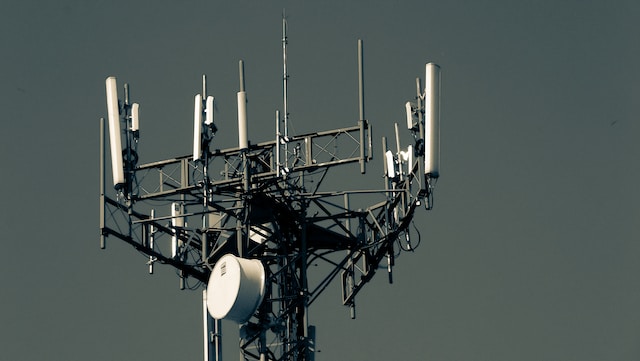Exploring the Advantages of 5G Technology over Previous Generations
Wireless communication has evolved significantly with each generation, with 5G emerging as a transformative revolution. This article explores the advantages of 5G technology and its immense potential for the future.
1. Introduction to 5G Technology
5G, the fifth generation of wireless technology, revolutionizes communication and connectivity with faster speeds, lower latency, and increased capacity, unlocking innovation and connectivity possibilities in industries.
2. The Need for Advancements in Wireless Communication
As data-intensive applications and connected devices demand increase, advancements in wireless communication are needed. 4G and 3G have proven effective, but their limitations necessitate the development of 5G to meet evolving requirements.
3. Faster Speeds: Unleashing Blazing-Fast Data Transfer
5G offers unparalleled speed, up to 100 times faster than 4G, enabling seamless streaming, quick downloads, and real-time interactions. This limitless high-bandwidth application and service revolutionize the industry.
4. Lower Latency: Reducing Delays for Real-Time Interactions
5G technology offers ultra-low latency, minimizing data travel between devices, enabling real-time interactions, and reducing delays in data transmission. This is crucial for applications that require instantaneous response, such as remote surgeries, autonomous vehicles, and augmented reality experiences.
5. Increased Capacity: Supporting Massive Device Connectivity
5G networks offer increased capacity, enabling seamless connectivity in smart homes, cities, and industrial applications. This capacity supports a large number of connected devices, making it ideal for the IoT era, enabling seamless data sharing and communication between devices.
6. Empowering the Internet of Things (IoT) Applications
IoT is a network of interconnected devices that communicate and exchange data. 5G technology enables seamless communication, enabling advancements in smart homes, healthcare, transportation, and industrial automation, providing bandwidth and low latency.
7. Enhancing Mobile Experiences: Seamless Streaming and Gaming
5G brings significant improvements to mobile experiences, particularly in streaming and gaming. With faster speeds and lower latency, users can enjoy seamless high-definition streaming, immersive augmented reality experiences, and multiplayer gaming without lag. 5G’s enhanced capabilities unlock new dimensions of mobile entertainment and productivity.
8. Transforming Industries: Unlocking New Possibilities
The advantages of 5G extend beyond mobile experiences. 5G technology has the potential to transform industries like healthcare, manufacturing, transportation, and agriculture, enabling real-time remote surgeries, smart factories, autonomous vehicles, and precision agriculture.
9. Bridging the Digital Divide: Access for All
5G offers high-speed internet access in underserved areas, bridging the digital divide and enabling equal access to educational resources, healthcare services, and economic opportunities. Its increased capacity and remote locations make it a promising solution.
10. Overcoming Challenges and Moving Forward
While 5G technology brings significant advantages, there are challenges to overcome, such as infrastructure deployment, spectrum allocation, and ensuring equitable access. Collaboration between governments, telecom providers, and industry stakeholders is crucial to address these challenges and unlock the full potential of 5G.
11. Future Prospects: Innovations Enabled by 5G
The prospects enabled by 5G are exciting and full of potential. From smart cities and autonomous transportation to remote robotics and immersive virtual reality experiences, 5G technology lays the foundation for a more connected, intelligent, and innovative world.
12. Conclusion
5G technology represents a monumental leap forward in wireless communication. With its faster speeds, lower latency, increased capacity, and transformative potential, 5G opens doors to unprecedented possibilities. 5G offers enhanced connectivity, innovation, and progress in a new era.
FAQs – Frequently Asked Questions
Q: What is 5G technology?
A: 5G technology revolutionizes wireless communication with faster speeds, lower latency, increased capacity, and enhanced connectivity.
Q: How is 5G different from previous wireless technologies?
A: 5G offers faster speeds, lower latency, and increased capacity compared to 4G and 3G, enabling seamless streaming, real-time interactions, and supporting multiple connected devices simultaneously.
Q: What are the advantages of 5G over previous generations?
A: 5G offers faster data transfer, lower latency, increased device connectivity, and IoT application empowerment.
Q: How does 5G enhance mobile experiences?
A: 5G enhances mobile experiences by providing seamless streaming, immersive augmented reality, multiplayer gaming without lag, and improved productivity through faster speeds and lower latency.
Q: In which industries can 5G technology make a significant impact?
A: 5G technology significantly impacts industries like healthcare, manufacturing, transportation, and agriculture. It enables advancements such as real-time remote surgeries, smart factories, autonomous vehicles, and precision agriculture.
Q: How can 5G bridge the digital divide?
A: 5G offers high-speed internet access to underserved areas, enabling equal access to educational resources, healthcare services, and economic opportunities, bridging the digital divide.
Q: What challenges are associated with implementing 5G technology?
A: Challenges associated with implementing 5G technology include infrastructure deployment, spectrum allocation, and ensuring equitable access. Stakeholder collaboration is essential for tackling challenges.
Q: What innovations can be enabled by 5G in the future?
A: 5G enables smart cities, autonomous transportation, remote robotics, and immersive virtual reality experiences, fostering a connected, intelligent, and innovative world.
Q: How can governments and industry stakeholders support the deployment of 5G?
A: Governments and industry stakeholders can support 5G deployment by promoting regulatory environments, investing in infrastructure, allocating spectrum, and fostering collaboration.
Q: What is the future of 5G technology?
A: 5G technology holds promise for future connectivity, IoT applications, smart cities, and transformative experiences, shaping communication and innovation across industries.


